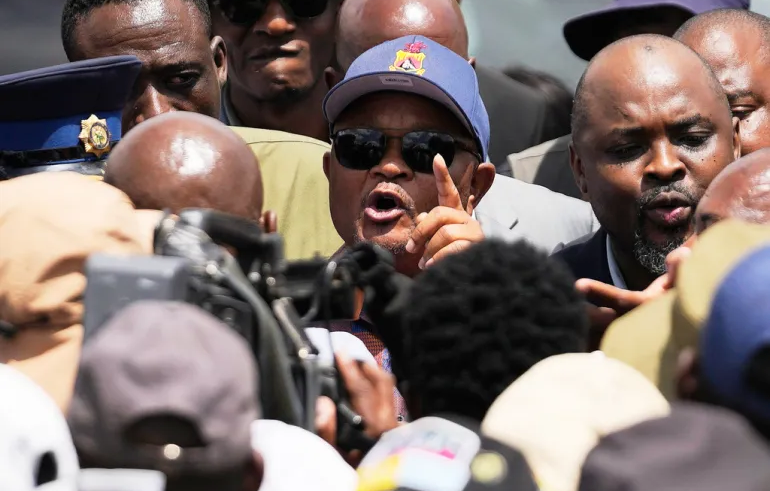South African President Cyril Ramaphosa has suspended Police Minister Senzo Mchunu with immediate effect amid explosive allegations of collusion with criminal syndicates and interference in politically sensitive investigations. The accusations were made by KwaZulu-Natal police commissioner Lt‑Gen. Nhlanhla Mkhwanazi, who claims digital evidence—such as WhatsApp messages—show that Mchunu directed the dismantling of a police task force probing politically motivated killings to protect powerful interests.
Ramaphosa has established a judicial commission of inquiry, chaired by Acting Deputy Chief Justice Mbuyiseli Madlanga, alongside senior counsels Sesi Baloyi and Sandile Khumalo. This commission is tasked with investigating claims that senior officials across the police, prosecuting authority, intelligence services, judiciary, and metropolitan areas have aided criminal operations, obstructed critical probes, or benefited financially or politically.
In the interim, law professor Firoz Cachalia has been appointed as acting Police Minister. The commission must deliver interim findings in three months and a full report within six months. Meanwhile, political fallout continues as opposition parties (DA, EFF, MK Party, and In July 2025, South African President Cyril Ramaphosa suspended Police Minister Senzo Mchunu over serious corruption allegations, prompting a judicial inquiry into possible high-level collusion with criminal syndicates—deepening political tensions and testing the government’s anti-corruption resolve. ) have laid charges and called for parliamentary inquiries and decisive action.
Implications & Context:
This scandal tests Ramaphosa's anti‑corruption agenda and strains his fragile coalition government. It exposes longstanding concerns about crime syndicate infiltration within state institutions—a challenge exacerbated by South Africa’s high violent crime rate and lingering state capture legacy . Civil society and investors are watching closely as the government moves to defend institutional integrity—or risk further damage to public trust and economic stability.
